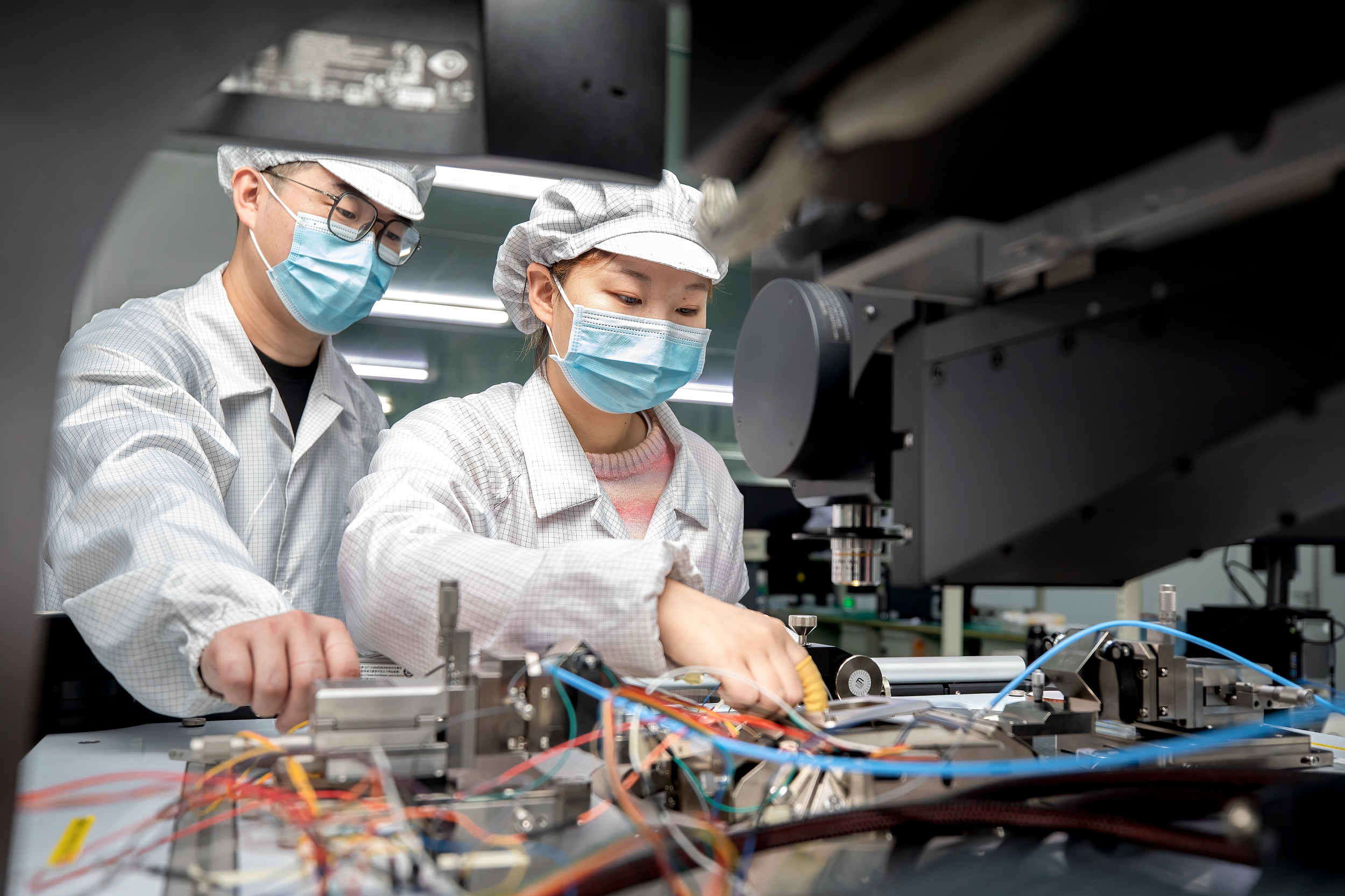Incentive System to Unleash Innovation Potential

Researchers conduct experiments at an institute in Hefei, Anhui province. (PHOTO: VCG)
By CHEN Chunyou
To improve the incentive system for science and technology is to maximize the potential of science and technology, human resources and innovation, enhancing the core competitiveness and providing support for building a modern socialist country in all respects.
This is what Wang Zhigang, minister of science and technology, said regarding the latest document titled Opinions on Improving Incentive Mechanism for Science and Technology, released by the General Office of the CPC Central Committee and the General Office of the State Council in a bid to solve problems in incentive system.
According to Wang, these problems include insufficient national mission-oriented incentives, a shortage of long-term and stable support for basic and public welfare research, and less effective measures for motivating young researchers, as well as a lack of an environment that inspires innovation and tolerates failure.
The document focuses the incentives on the dedicated personnel and teams that devote themselves to research, and prioritizes those who contribute to science and technology progress, socioeconomic development and national strategic security.
An incentive based on the size of contributions made by front-line individuals and teams is stressed.
To create a friendly growth environment for young researchers, national non-profit research institutes and universities affiliated with ministries, are required to spend no less than 50 percent of their basic research funds on the youth.
It also calls for increasing the proportion of young researchers who undertake major national tasks and projects. More than 20 percent of young researchers aged under 40 will host national key research projects in the next five years.
The document encourages researchers to immerse themselves in basic research, and other unpopular and overlooked fields, as well as establishing long-term support mechanisms for them.
In addition, the reform of public academic organizations, like research institutes and universities, is to be deepened through implementing a different management system, such as giving them more rights to make decisions on their internal affairs.
To ensure that researchers have enough time to engage in their research, the document proposes reducing unnecessary administrative gatherings and social activities, while streamlining research reviews and evaluation processes.


